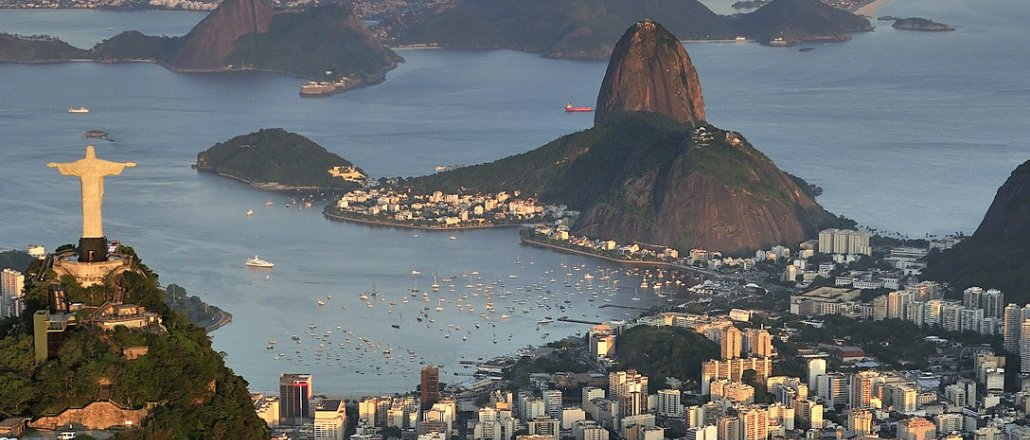
Facebook is sending a team of staffers down to Rio de Janeiro to help NBC take “social command” of the Olympics.
The partnership between the companies means a lot of Olympics-related content will be coming soon to Facebook and Instagram before and during the 2016 Games, which begin on August 5. With the help of Facebook and Instagram staffers, NBC Olympics will be producing Facebook live videos as well as short-form clips featuring highlights and interviews with athletes and NBC personalities. Additionally, NBC Olympics will produce a two-minute daily recap video for Facebook users and a slow-motion video of an inspiring moment for Instagram. (All content will be restricted to Facebook and Instagram users in the U.S., where NBCUniversal has exclusive rights to broadcast Olympics content.)
All of this will be overseen by a physical “social command center” in Rio de Janeiro, which will be populated with Facebook and Instagram staffers and NBC Olympics video and social media producers.
“Sports has always brought the world together and that’s true on Facebook and Instagram as well,” said Dan Reed, head of global sports partnerships for Facebook. “We routinely see users engage in real-time around major sporting events, whether it’s the Super Bowl or the Euro Championships or Copa America.”
With the Olympics being the next big sporting event, social networks are vying to be the all-important second screen for content surrounding the actual competitions, which NBC will still exclusively broadcast on its own TV channels and digital platforms. Snapchat, for instance, has a partnership with NBC to distribute Olympics-related content via a pop-up Discovery channel and custom Live Story. In the same vein, Facebook and Instagram, which claim a reach of 650 million and 150 million sports fans, want to be hotbeds of conversations surrounding the games.
There is some evidence that suggests social media platforms are becoming important second-screen platforms. In a survey by WPP agency Mindshare North America, 40 percent of likely Olympic viewers said if they missed an event, the first place they’d look for results is on social media.
“We want people on Facebook and Instagram to be able to catch up on the action,” said Reed. “All the highlights and key storylines that are happening around the Olympics — people will find that [via] video on Facebook and Instagram.”
Reed declined to comment when asked if any money had changed hands between Facebook and NBCUniversal. And while Instagram will feature content on its own account as well as within its search tab, Facebook and Instagram won’t prioritize Olympics content above others, he said.
This is not the first time Facebook has partnered with NBC Sports on an Olympics. However, Instagram’s involvement is a key difference this time around. Video is another.
Facebook CEO Mark Zuckerberg said earlier this week that Facebook will be a “video-first” company one day. Today, Facebook does more than 100 million hours of video consumption per day, with watch time growing by 150 percent across Facebook and Instagram, the company said.
With NBC Olympics planning to air 6,700 hours of Olympics content across TV and digital, and producing even more for social platforms, video will be a major component of the Olympics partnership. Of course, Facebook and Instagram will get a bit of a boost on TV, too. Olympics-related content posted to both platforms by NBC Olympics, athletes and celebrities will often be incorporated into TV coverage, including on NBC in primetime and late night, the companies said.
For NBC, the Facebook and Instagram partnership — as well as its deal with Snapchat and BuzzFeed — is an opportunity to both drive more awareness for the games as well as reach younger viewers.
“It’s tougher to reach younger audiences through traditional television means. Most TV today is either streamed, delayed through a DVR or watched on-demand,” said John Miller, CMO of NBC Olympics. “So how do you reach them? Well, you reach them through digital and viral means.”
Image via Fotolia / readytogo
More in Media

In Graphic Detail: The scale of the challenge facing publishers, politicians eager to damage Google’s adland dominance
Last year was a blowout ad revenue year for Google, despite challenges from several quarters.

Why Walmart is basically a tech company now
The retail giant joined the Nasdaq exchange, also home to technology companies like Amazon, in December.

The Athletic invests in live blogs, video to insulate sports coverage from AI scraping
As the Super Bowl and Winter Olympics collide, The Athletic is leaning into live blogs and video to keeps fans locked in, and AI bots at bay.





